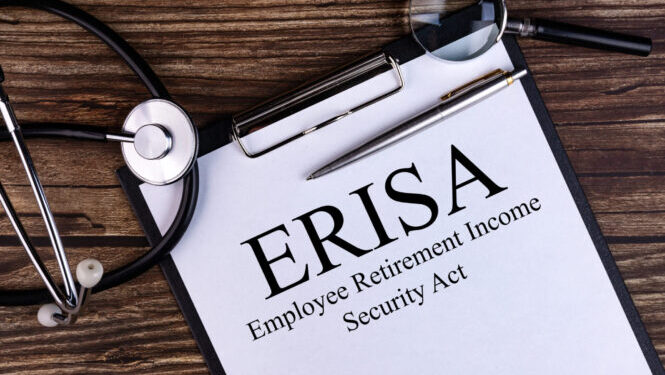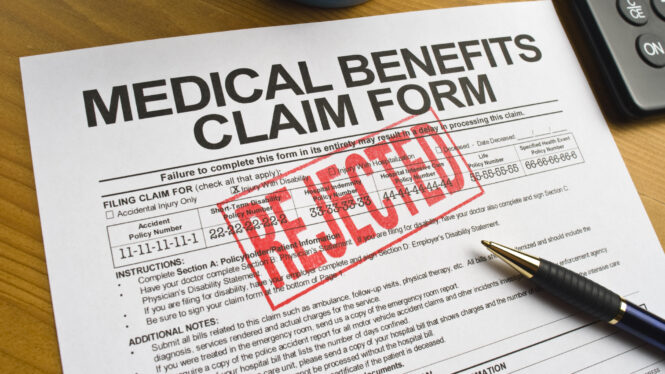Navigating the complex landscape of long-term disability (LTD) benefits can be a daunting task. These benefits, though often overlooked, play a crucial role in the lives of those confronted by unforeseen medical conditions that inhibit their ability to work.
In this guide, we’ll delve deep into the intricacies of medical conditions and legal strategies that intertwine with the pursuit of LTD benefits.
Understanding Long-Term Disability (LTD) Benefits
At its core, LTD benefits are designed to provide financial support for those who cannot work due to prolonged illnesses or injuries. Whether it’s an accident, a sudden illness, or a chronic condition, these benefits can provide much-needed relief.
Having LTD coverage through employers or private plans ensures you’re safeguarded against the unpredictability of life. Without it, you may find yourself facing financial hardships, on top of health concerns.
Common Medical Conditions That May Lead to LTD Claims

Medical conditions, ranging from physical injuries to chronic illnesses and mental health issues, can hinder one’s work capacity. Physical conditions like spinal injuries or severe burns might immediately come to mind.
Yet, mental conditions such as depression, anxiety, or PTSD are equally valid grounds. Furthermore, chronic illnesses such as fibromyalgia, Crohn’s disease, or even chronic fatigue syndrome can take a toll on one’s daily function. Understanding the breadth of conditions that qualify is paramount.
Documenting Medical Conditions for LTD Claims
Medical documentation is the backbone of your claim. Assembling comprehensive records, test results, and physician statements not only lends credibility but also ensures your claim is processed smoothly. Also it’s vital evidence when you consult your Long-Term Disability Lawyers before filing the case.
Begin by maintaining a chronological record of doctor’s visits, and make duplicates of all diagnostic results. Doctor’s statements should detail the severity and longevity of your condition, and its impact on your work capabilities.
The Application Process for LTD Benefits

The application process requires meticulous attention to detail. Initiate by fully completing the claim form, ensuring all sections are accurately filled. Alongside this, it’s essential to cross-check every piece of information you provide, mitigating any potential discrepancies.
You’ll be required to provide evidence of your medical condition, which ties back to our earlier emphasis on thorough documentation. Furthermore, coordinating with your healthcare provider can help streamline this evidence collection. Always remember: accuracy and completeness speed up the process, reducing potential setbacks or delays.
Potential Challenges During the LTD Claims Process
Navigating the LTD claims process can be riddled with challenges. Delays, often stemming from administrative intricacies, can test your patience. Facing requests for additional documentation, though cumbersome, can be managed with prompt action. If confronted with an outright denial, don’t be disheartened – seek professional guidance.
Expert advice can offer insight into how to effectively address these roadblocks. Persistence and a profound understanding of the nuances of your claim will be your allies in overcoming these hurdles.
Legal Aspects of Long-Term Disability Claims

As you delve into the world of long-term disability claims, the legal dimension unveils a complex landscape. The predominant plan types, governed either by the Employee Retirement Income Security Act (ERISA) or non-ERISA structures, wield a significant influence.
Recognizing which category your plan falls into becomes pivotal, as it shapes your approach to both the claim process and potential legal recourse. Your awareness of these legal intricacies can markedly impact the trajectory of your pursuit.
Choosing the Right Legal Representation
Selecting adept legal representation is a strategic move that can tip the scales in your favor. The realm of disability law is intricate, and an attorney specialized in this field becomes an invaluable ally. Seek out legal professionals with a substantial history in handling LTD claims, and don’t hesitate to inquire about their track record.
Their prowess can translate to the fine line between the acceptance or denial of your claim. Trusting their expertise empowers you to navigate the complexities with confidence.
Building a Strong Case: Medical Evidence and Legal Precedents

Beyond the meticulous documentation, your claim’s strength emerges from the synergy between medical evidence and established legal precedents. Your medical documentation should unequivocally reinforce the veracity of your claim, leaving no room for doubt.
Moreover, immersing yourself in past cases akin to yours serves a twofold purpose: it fortifies your argument and highlights well-founded precedents that align with your position. This fusion of medical validation and legal backing solidifies your case’s foundation.
Negotiation and Settlement Strategies
In the realm of long-term disability claims, dealing with insurance companies necessitates strategic finesse. Recognize that insurance providers operate as businesses, and their interest in minimizing payouts can create negotiation challenges.
Equip yourself with negotiation strategies that showcase your claim’s legitimacy. While advocating for your rightful compensation, maintain an openness to the possibility of settlements. Striking this equilibrium requires understanding the dynamics of insurance negotiations and aligning them with your case’s merits.
Appealing Denied Claims

A claim denial might seem like an insurmountable setback, but avenues for recourse exist. The appeal process stands as a safeguard, ensuring that deserving claimants receive fair consideration. When confronted with a denial, it’s essential to address the specific reasons outlined in the rejection.
If your initial application was thorough, the appeal becomes an opportunity to strengthen your case. Reinforce your presented evidence and possibly expand upon it, demonstrating your unwavering commitment to proving your claim’s validity.
Litigation as a Last Resort
When all else fails, litigation can emerge as the final recourse. Embarking on this path demands resilience, as it involves navigating a prolonged and arduous process. Yet, in certain circumstances, litigation becomes a necessary step toward securing your rightful benefits.
The courtroom becomes your platform to present your case comprehensively, underscoring the indispensability of robust medical evidence. To navigate this complex journey, entrust a seasoned attorney to champion your cause, reinforcing your arguments and advocating on your behalf.
Conclusion
Pursuing LTD benefits is a journey—often complex, occasionally frustrating, but ultimately crucial for many. With the right blend of medical evidence, legal strategy, and persistence, claimants stand a solid chance of securing their rightful benefits. Always remember to seek professional guidance; you don’t have to walk this path alone.
 Imagup General Magazine 2024
Imagup General Magazine 2024



